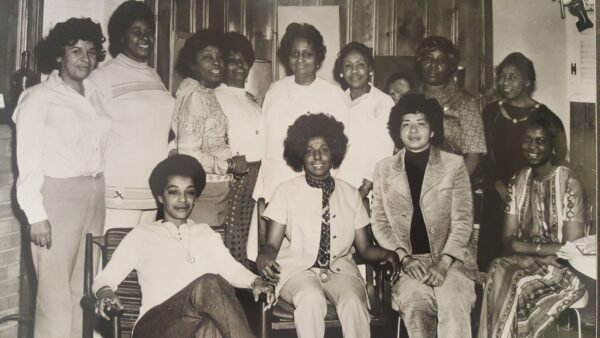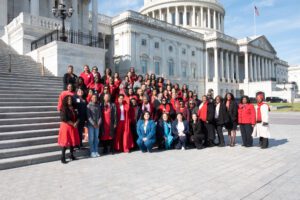History
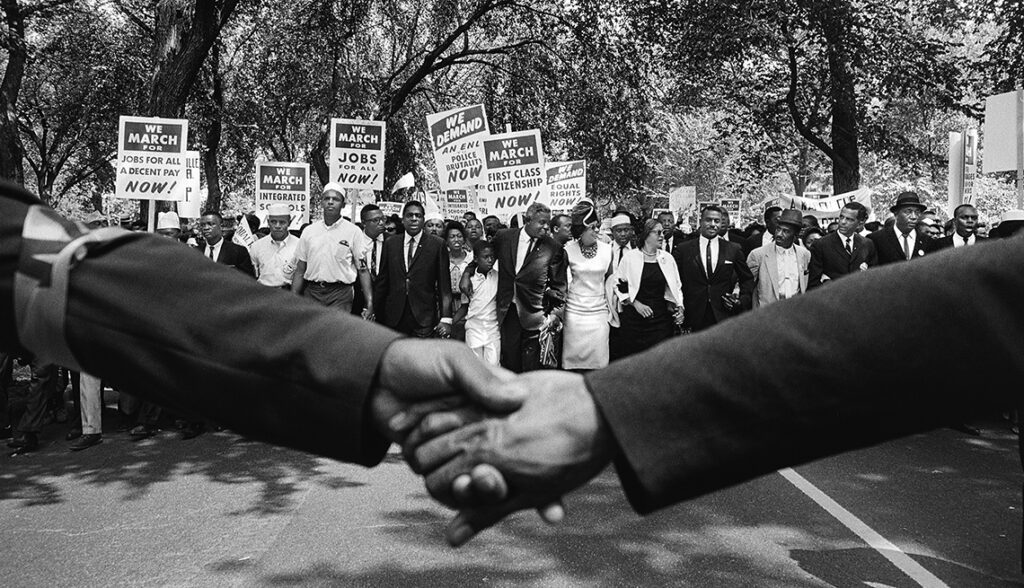
1960s
The Civil Rights Movement was cultivated by Black Americans and served as the impetus that moved Blacks from all professions and walks of life to action. Black Nurses also answered the call.
1970
- Inspired to create a better health care system with prominent roles for Black nurses, Dr. Betty Smith Williams & Dr. Barbara Johnson, created the Council of Black Nurses in Los Angeles. In addition, innovators, Dr. Florence A. Stroud and Carlessia Hussein created the Bay Area Black Nurses Association.
- Following decades of racism that systemically and systematically excluded Black nurses from the American Nurses Association, Dr. Lauranne Sams organized a meeting for over 200 Black nurses across the United States. The meeting was hosted and planned by Council of Black nurses LA and the Bay Area Black Nurses Association. Nurses from New York, Ohio, and Florida navigated across the U.S. to participate in the California statewide conference. Thus, the seeds of NBNA were sown.
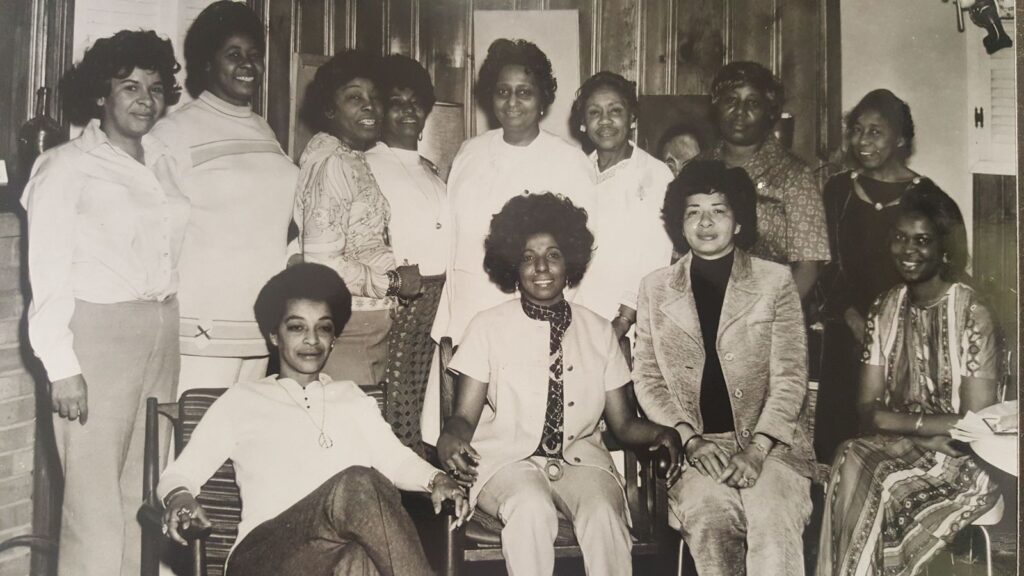

1971
The National Black Nurses Association was founded at a meeting in Cleveland, Ohio, to place black nurses in the mainstream of professional nurses. The meeting was attended by nurses from across the nation including but not limited to Dr. Lauranne Sams, Betty Smith Williams, Gertrude Baker, and Dr. Mary Harper.
1972
- NBNA develops a philosophy and mission, organizational structure, Constitution and By-laws, and operating procedures.
- The Miami Black Nurses Association donated to aid NBNA in organizing all black nurses into a cohesive national body.


1973
In Dr. Lauranne Sams first address as president of NBNA, Dr. Sams responded to the question of “Why a Black Nurses Association” with ““No, I am speaking about all the past deficits and discriminatory practice which have continuously disgraced and limited the full potential, the development, the selfhood, and the self determination of Black folk. I am speaking about today, Here and Now,” (Carnegie & ANA racial reckoning website).
1973
Dr. Lauranne Sams
NBNA 1st President 1973–1977
Graduating with a bachelor’s in nursing in 1950 from Butler University and Indianapolis General Hospital School of Nursing, Dr. Sams went on to complete a Master’s degree in Education and Clinical Nursing and, by 1968, a doctorate degree in Educational Psychology (both from Indiana University). She became a nationally recognized nursing educator who served 16 years teaching at the Indiana School of Nursing, became dean of the school of Nursing at Tuskegee University, and was appointed to the Indiana State Board of Nurse Registration and Education. While specializing in OB/GYN and maternal-infant nursing early in her career, following her retirement, she pursued post-doctorate studies in gerontology.
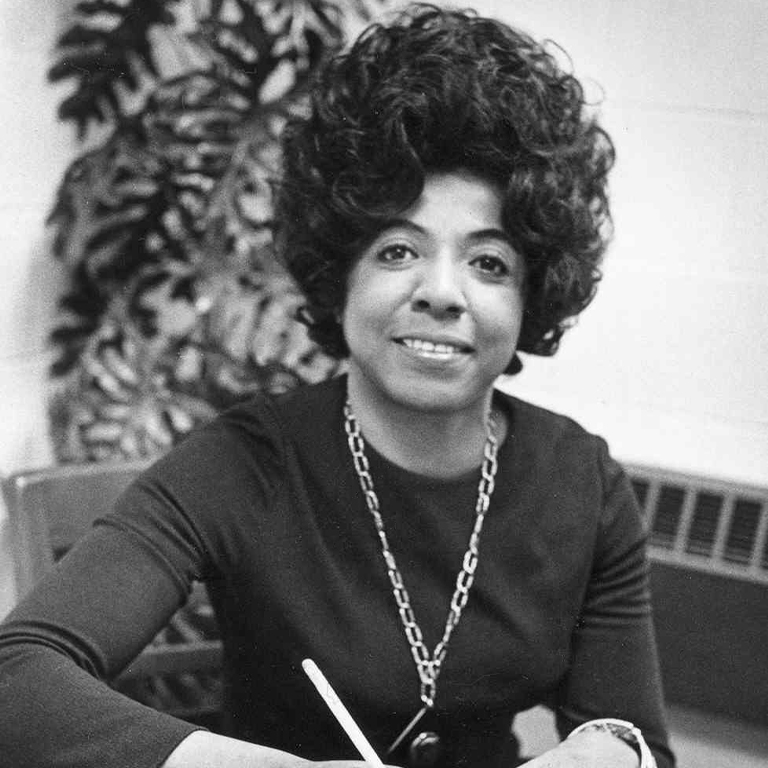
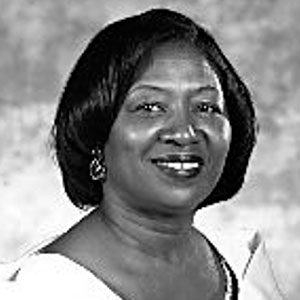
1977
Dr. Carrie Frazier Brown
NBNA 2nd President 1977–1979
Born in Louisiana as the second eldest of 14 children, Carrie Frazier Brown’s scholastic achievements in high school enabled her to start her bachelor’s of science at age 14 from Dillard University. By seventeen, she worked as a nurse for the US Army and by 19 she was promoted to captain and worked as pediatric clinic supervisor. She went on to receive a MA in human relations, a MS in psychiatric nursing, and a PhD. She is on congressional record in support of the Nursing Training Act, served for six years as Detroit’s health commissioner, and served as the second president of the NBNA. She was recognized in 1993 by ANA’s Michigan chapter as outstanding psycho-mental health nurse and in 1996 as nurse of the year by the NBNA.
1979
Dr. E. Lorraine Baugh
NBNA 3rd President 1979–1983
E. Lorraine Baugh began her nursing career with a diploma in nursing from Boston City Hospital and later received her bachelor’s and master’s (in nursing education) from Boston University, and doctorate of education from Boston College. She authored a book on opening doors to nursing education, served as the third NBNA president, and the first Chair of the Massachusetts General Hospital Board of Trustees, which she served for a decade. She has been awarded by the Massachusetts Public Health Association, among many other organizations.
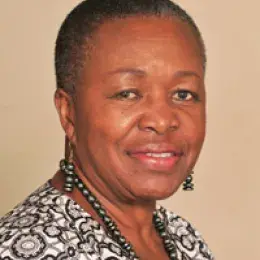
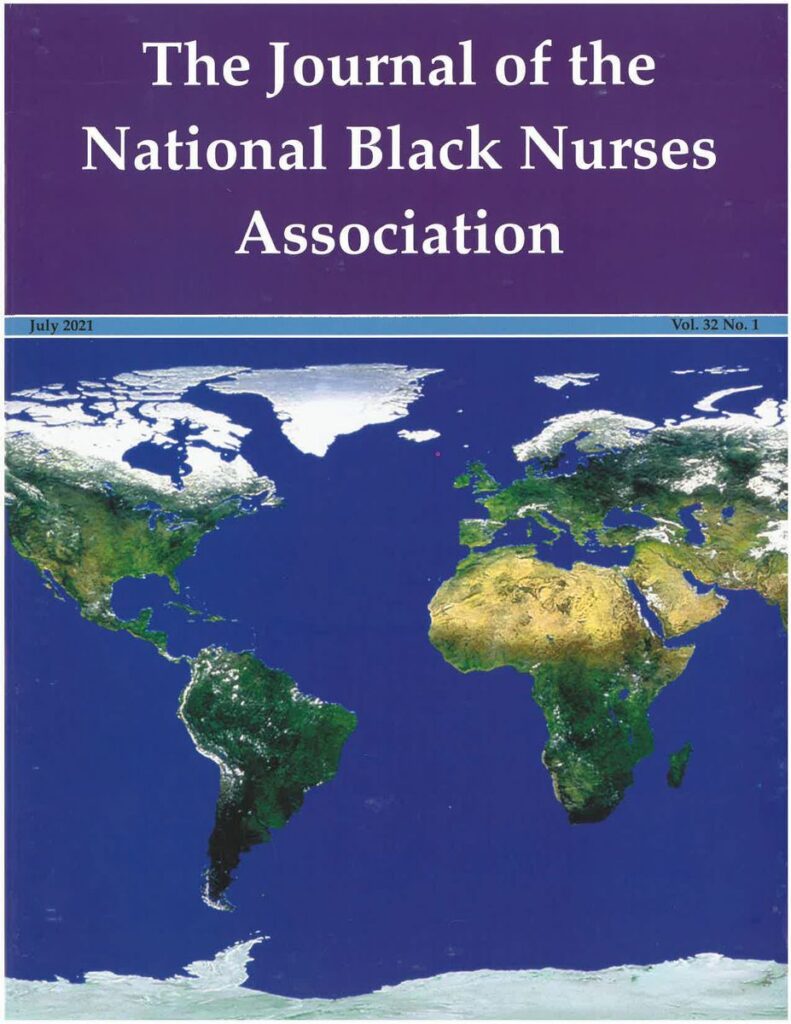
1980(year uncertain)
- NBNA created the Journal of the National Black Nurses Association during the tenure of Dr. Ophelia Long, the 4th national president of NBNA.
- Published twice annually, the Journal of the National Black Nurses Association contains peer refereed health research-based articles.
- The Journal was initially supported by contributions from Kaiser Permanente during the tenure of the Ophelia Long, the 4thNBNA President.
1983
Ophelia Long
NBNA 4th President 1983–1987
During a 27-year career at Kaiser Permanente, Ophelia Long’s nursing roles evolved from the ICU to administration. She then served for five years as CEO of Alameda County Medical Center prior to becoming the only nurse to serve as vice president of Meharry Medical College. Later she created and owned Long and Associates, a healthcare management consulting firm. In addition to serving as a president of the National Black Nurses Association and treasurer of National Black Nurses Foundation, she also contributed to the Black Congress on Health, Law, and Economics, where she served as its national chairperson to shape national policy.

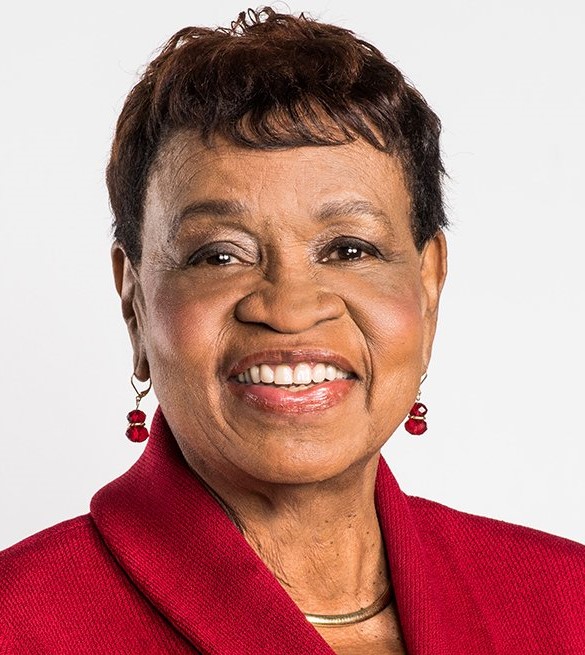
1987
Dr. C. Alicia Georges
NBNA 5th President 1987–1991
C. Alicia Georges received her bachelor’s of nursing from Seton Hall University, master’s in community health administration from NYU College of Nursing, and doctorate in education from the University of Vermont. At the City University of New York, Dr. Georges is the department chair of the department of nursing. In addition to serving as the fifth president of NBNA, she is on the board of the Black Women’s Health Study, served on the board of directors at AARP since 2010, and was elected as the national volunteer president in 2020. She has served on the Nursing Education and Practice Advisory Council for the US Department of Health and Human Services and received the ANA Mary Mahoney Award for increasing minority representation in nursing. She is a fellow of the American Academy of Nursing and was declared an academy living legend in 2019.
1988
Inspired and led by past president Dr. C. Alicia Georges, NBNA launches National Black Nurses Day on Capitol Hill, to educate the U.S. Congress on the nursing shortage, the nursing profession, and health care disparities. Over 300 nurses and nursing students attend the event. Currently, over 500 nurses and nursing students attend this yearly event held on the first Thursday in February.
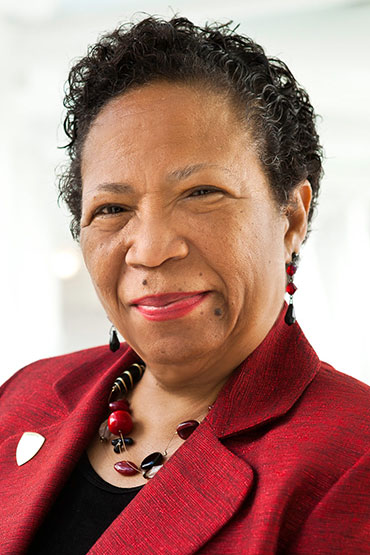
1991
Dr. Linda Burnes Bolton
NBNA 6th President 1991–1995
Dr. Linda Burnes Bolton received her bachelor’s and master’s in nursing from Arizona State University, and master’s and doctorate in public health from UCLA. In 1991 she became vice president of nursing at Cedars-Sinai, later become becoming senior vice president, director of nursing research, and chief nurse executive until 2019 when she accepted the inaugural role of senior vice president and chief health equity officer. She served as chair for Robert Wood Johnson Foundation’s National Advisory Committee for Transforming Care at the Bedside and vice chair for Initiative on the Future of Nursing at the Institute of Medicine. In addition to serving as a president of the National Black Nurses Association, she was named a 2016 living nursing legend by ANA, has received lifetime achievement awards from NBNA and AONL, and has been named a top 25 women in healthcare.
1995
Dr. Betty Smith Williams
NBNA 7th President 1995–1999
Dr. Betty Smith Williams graduated as the first Black student from Frances Payne Bolton School of Nursing in 1954 and went on to become assistant dean at UCLA School of Nursing, dean of the School of Nursing at University of Colorado, founding dean at American University School of Nursing, as well as professor emeritus at California State University. In 1968 she co-founded the Council of Black Nurses in Los Angeles to address inequities of that time and co-founded the National Black Nurses Association in 1971. She was the seventh president of the National Black Nurses Association, president of the National Coalition of the Ethnic Minority Nurse Associations and named as the one of the top 100 influential health leaders. She is a fellow of the American Academy of Nursing and was declared an academy living legend in 2010.
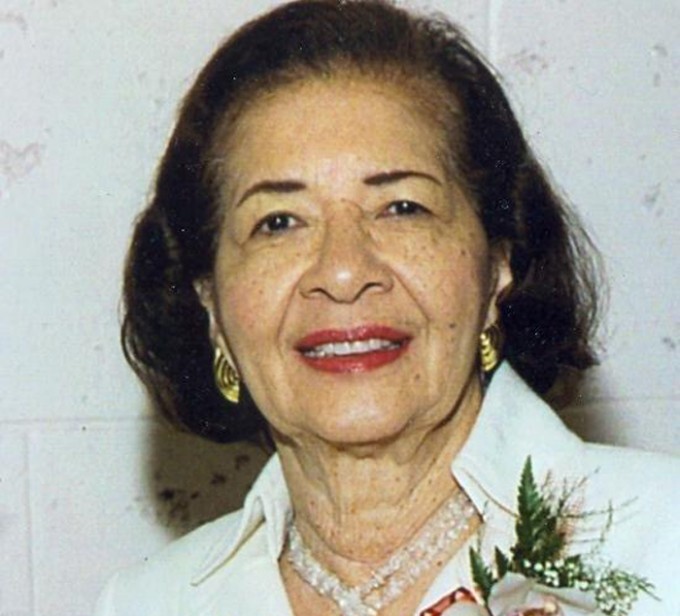
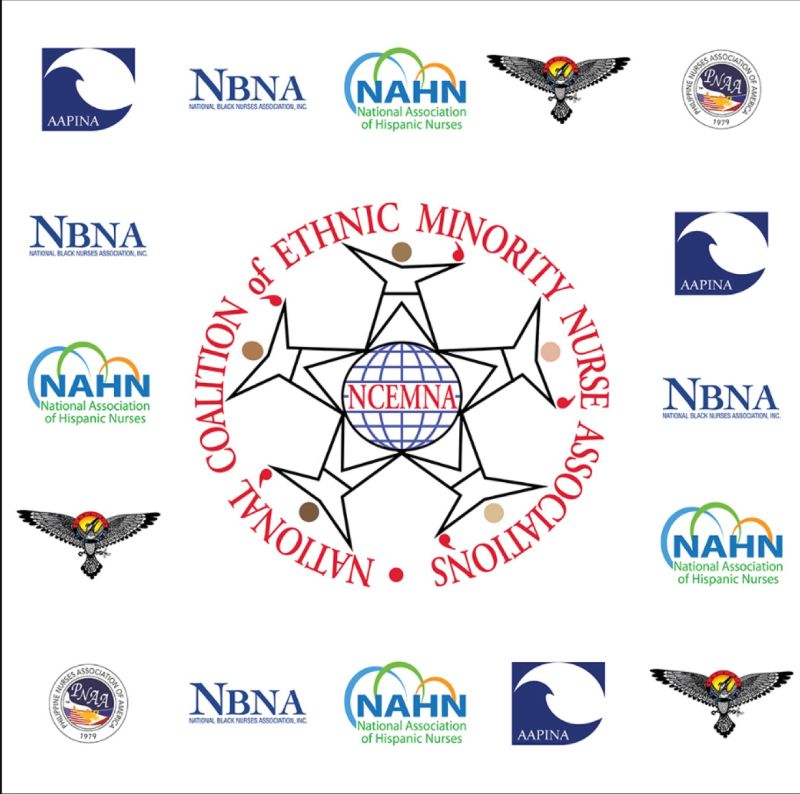
1998
- The National Black Nurses Association became one of the five founding nursing organizations of the National Coalition of Ethnic Minority Nurse Associations, along with Asian American/Pacific Islander Nurses Association, Inc., National Alaska Native American Indian Nurses Association, Inc.; National Association of Hispanic Nurses, Inc.; and, the Philippine Nurses Association of America, Inc.
- As a result, this collaboration gives voice to over one million nurses of color. Dr. Betty Smith Williams was the first NCEMNA president and a past NBNA president.
1999
Dr. Hilda Richards
NBNA 8th President 1999–2003
For Dr. Hilda Richards, born in 1936, anti-Black discrimination reached a new level of absurdity when she applied to a Catholic nursing school in St. Louis, MO. There, the admission office suggested she pretend to be Mexican, as there had never been a Black student admitted in the school before. After traveling to a sister nursing school in another city for two years, she was finally accepted to the original school. She became its first Black graduate in 1956 and went on to become one of the first Black psychiatric nurses at Payne Whitney Hospital and then head nurse of the adolescent psychiatry unit. She pursued her bachelor’s of nursing at Hunter College, followed by a Master’s in psychiatric nursing and doctorate of education from Columbia University, and a Master’s in public health from New York University.
Before the National Black Nurses Association had even been formed (where she would become its eighth president), she joined the New York chapter of Black Nurses Association in 1969. In 1974, she became chairman of the health sciences division at Medgar Evers College of Brooklyn, followed by serving as the first Black and first female academic dean of the College of Health and Human Services at Ohio University in 1979, and then served as the first Black chancellor in the entire Indiana University system, where her long tenure until retirement “helped IU Northwest blossom into one of the most diverse campuses in northwest Indiana and beyond” (Briskey, 2020).
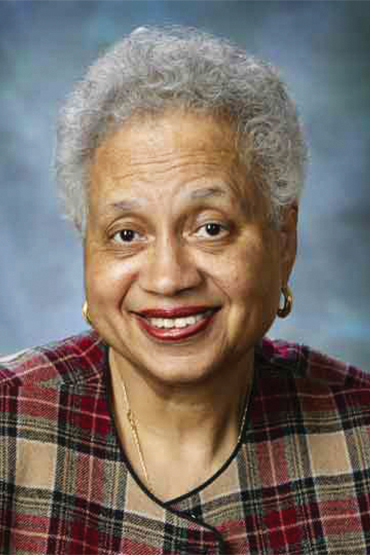
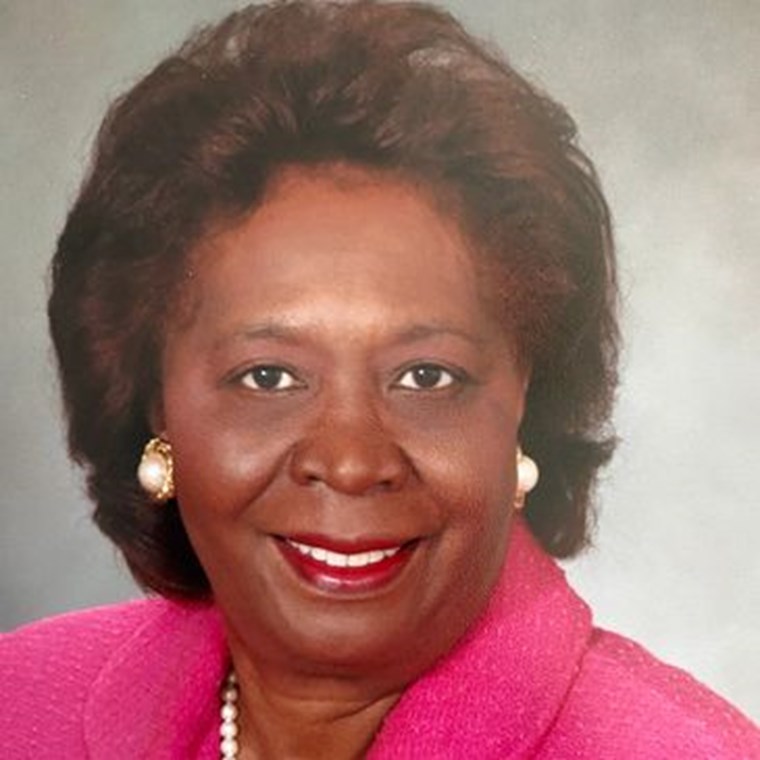
2003
Dr. Bettye Davis-Lewis
NBNA 9th President 2003–2007
Dr. Bettye Davis Lewis graduated with her bachelor’s in nursing from Prairie View A&M University College of Nursing. She also received a Bachelors of Arts in Psychology from the University of Houston and a Master’s and Doctorate of Education from Texas Southern University. She was the first African American selected as a Leadership Extern in Sigma Theta Tau International Honor Society and served as the ninth president of NBNA. She has been featured for three years as one of the 100 Most Influential Americans in Ebony Magazine and has been listed in Who’s Who in American Nursing and Who’s Who in American and Distinguished African American Nursing. She is a Fellow of the American Academy of Nursing, a Fellow in the International Society of Hypertension in Blacks, and is also the recipient of the African American Achievement Award.
2007
Dr. Debra A. Toney
NBNA 10th President 2007–2011
Dr. Toney received her nursing degree in 1974, a Master’s in Health Services Administration, and a doctorate in Human Services with a specialization in Healthcare Administration. From 2007 to 2011, she served as the 10th President of the National Black Nurses Association and also as the founder of the Southern Nevada Black Nurses Association. She also served as the president of the National Coalition of Ethnic Minority Nurse Associations, project lead of Nurses on Boards Coalition where she increased the number of nurses on community and corporate boards, and is as former board member of the American Academy of Nursing. She served for many years as the Vice President of Quality Management at Nevada’s largest federally qualified health center. She is a fellow of the American Academy of Nursing.
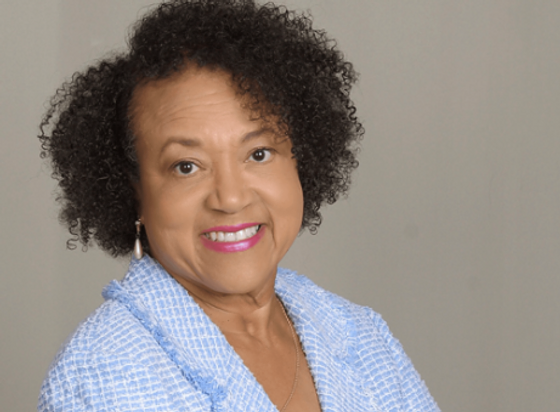

2011
- Spearheaded by president Dr. Debra A. Toney, NBNA launches The Under 40 Forum for members to recognize and cultivate young trailblazers into future leaders of health care.
- The First NBNA Summer Youth Enrichment was conceived by Eboni Martin, daughter of Dr. Yuvonne Martin, Past President of Miami Chapter – Black Nurses Association and strongly supported by Dr. Debra Toney and NBNA for young people ages 9-18.
Scholarships
- During the annual institute and conference, NBNA gives scholarships to nursing students at every level of school, LPN students, RN students, Masters of Nursing students, and Doctorate students. In 2023, NBNA gave a record number of scholarships, 57, and a record amount of money, $257,000.
2011
Rev. Dr. Deidre Walton
NBNA 11th President 2011–2015
As a graduate of U.S. Army and Command General Staff College and with a Bachelors and Master’s in Nursing, as well as her Juris Doctor. Rev. Dr. Deidre Walton served as the eleventh president of the National Black Nurses Association. Her experience includes her role as Vice President of Utilization Management with Aetna and is a retired commissioned officer of the U. S. Army, holding rank of Lieutenant Colonel. She is a member of the steering committee sponsored by the Robert Woods Johnson Foundation in partnership with AARP’s Center for Championing Nurses in America and is an Itinerant Elder in the AME Church. She has also been nominated by Modern Healthcare as one of the 100 most influential people in healthcare.
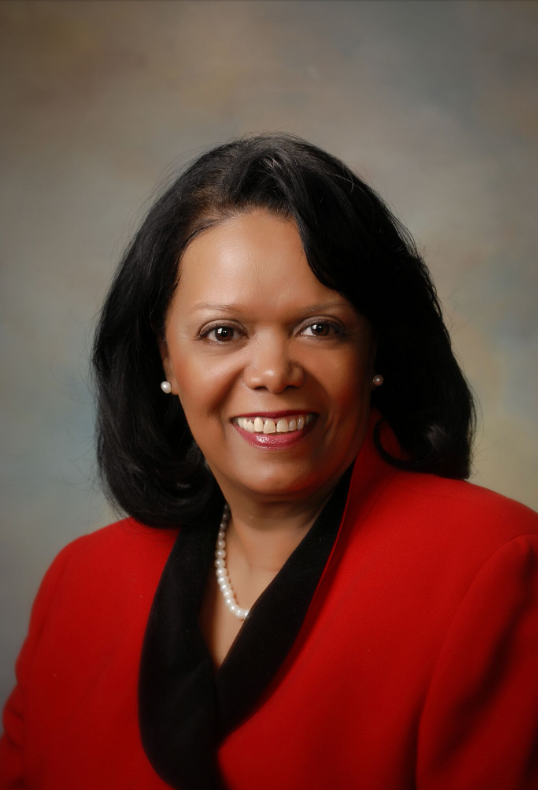
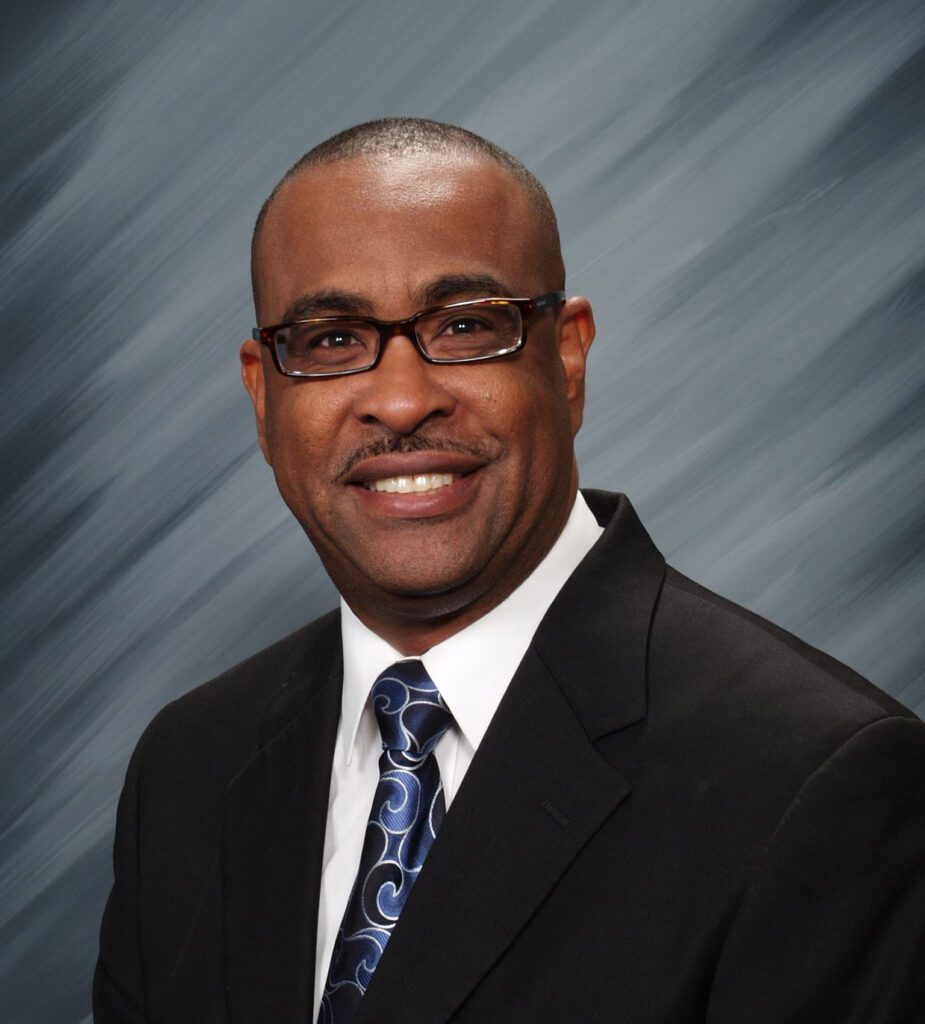
2015
Dr. Eric J. Williams
NBNA 12th President 2015–2019:
NBNA's First Elected Male President
Eric Williams becomes the first male president of NBNA and creates a record number of committees and actions during his tenure.
Dr. Eric J. Williams was inspired to enter nursing after his father endured a stroke that resulted in left-sided paralysis. He graduated nursing school in 1986, received his master’s in nursing education in 2001, and doctorate of Nursing from Case Western Reserve University in 2007. He first joined the National Black Nurses Association as a student nurse in 1984 and later became its 12th president where he developed initiatives around collaborative mentorship, global health, substance misuse, and violence reduction. Dr. Williams was also the first Black male faculty member at Santa Monica College of Nursing, later becoming assistant director, faculty chair, and interim associate dean of health sciences / nursing program director. In 2019 he became co-chair of the Equity, Diversity, and Inclusion Steering Committee for the IOM / Robert Wood Johnson Foundations Future of Nursing: Campaign for Action. He is a fellow of the American Academy of Nursing.
2016
National Black Nurses Association Collaborative Mentorship Program (NBNACMP) – a national initiative in 2016 conceived by the 12th president of NBNA, Dr. Eric J. Williams. Committee members were appointed by Dr. Williams and gave the charge to develop a mentorship program for NBNA members that encompassed nurses with varying education, experience, and goals to early career nurses and seasoned nurses into their career ladder.
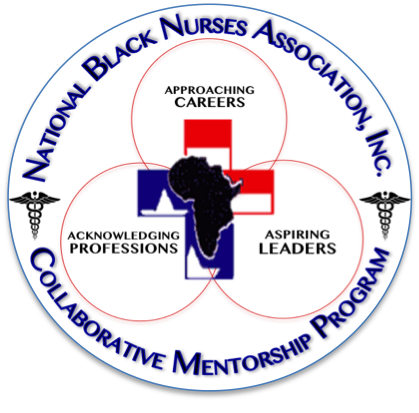
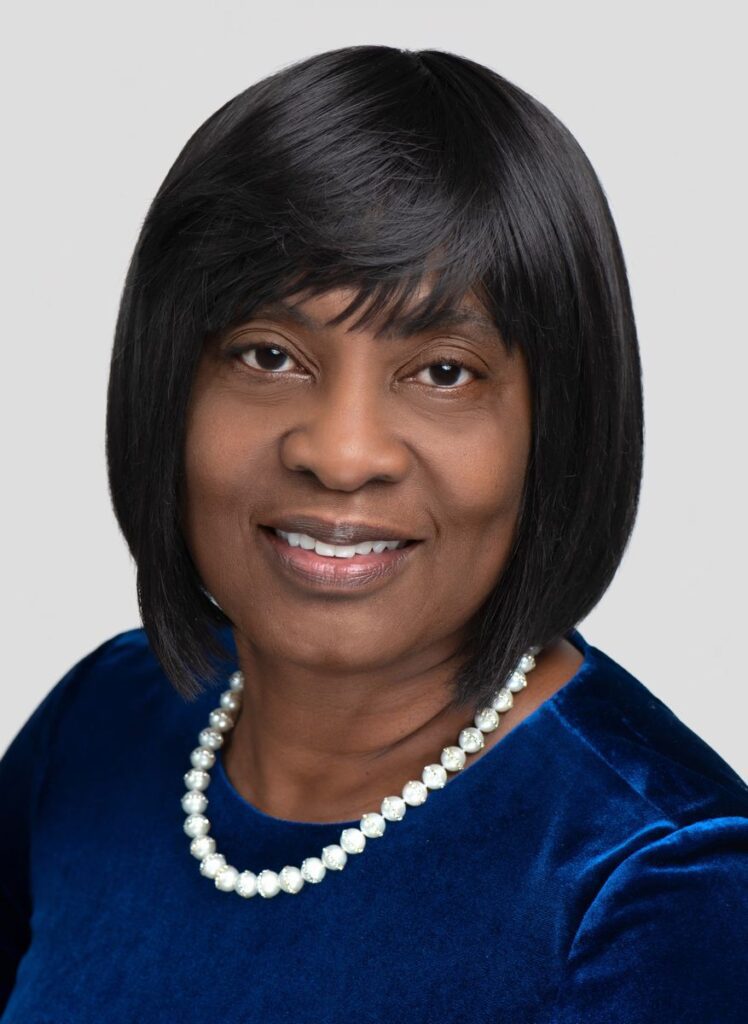
2019
Dr. Martha A. Dawson
NBNA 13th President 2019 — 2023
Was the thirteenth president of the National Black Nurses Association. Dr. Martha Dawson received her bachelor’s and master’s degree from the University of Alabama and doctorate of nursing practice from Case Western Reserve University. A nurse faculty member at University of Alabama Birmingham since 2008, she has served as the principal investigator and project director on Health and Human Resources workforce diversity and enrichment grants since 2009. She has been named one of 10 nurses in the inaugural book The Power of Ten, is a distinguished citizen of Louisville Kentucky, a Robert Wood Johnson nurse executive fellow, and Johnson and Johnson Wharton Nurse Administration Fellow, among many other recognitions. She is also a 2019 inductee of the Alabama Nursing Hall of Fame. She is a fellow of the American Academy of Nursing.
2020
- During the COVID-19 pandemic and under the leadership of Dr. Martha Dawson, NBNA led the way on the front-line and throughout health care systems and communities. As COVID-19 disproportionately effected and killed Black Americans, NBNA rallied and battled the pandemic. In New York City, which was ground zero, NBNA member Dr. Natalia Cineas led the nation’s largest public health care system.
- Following the George Floyd murder NBNA members led protest around the country for Justice, Equity, Diversity, and Inclusion
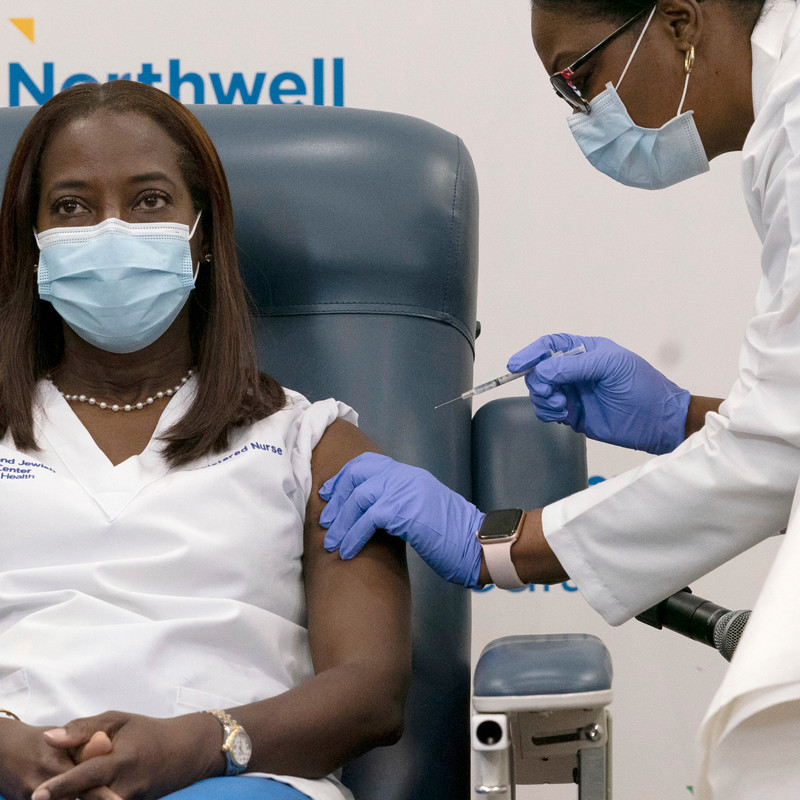
2021
- NBNA nurses in NY, Miami, Alabama, and throughout the country designed, implemented, and transformed health care projects to educate communities on vaccines, vaccinate at risk populations against covid, and decrease health disparities in underserved communities.
- Dr. Sandra Lindsey, an NBNA member, becomes the first person to receive the covid-19 vaccine.
2023
Dr. Sheldon D. Fields
NBNA 14th President 2023 — Present
Born in New York city to an African American mother and a Puerto-Rican father he initially joined NBNA in 1998. He received both his Bachelor’s degree in Nursing in 1987, and Master’s degree in Family Nursing in 1995 from Binghamton University (State University of New York). He earned his PhD in Nursing science from the University of Pennsylvania in 2000 becoming that programs first Black Male graduate ever. He is a long time academic and currently serves as the inaugural Associate Dean of Equity and Inclusion and Research professor in the Ross and Carol Nese College of Nursing at Penn State University. He is a fellow of the American Association of Nurse Practitioners, The National Academies of Practice, and the American Academy of Nursing. He was elected to the NBNA presidency on a platform to re-imagine NBNA which is currently underway. Dr. Fields is NBNA’s first Gen-X and first Nurse Practitioner president, in addition to also being its second elected male president.
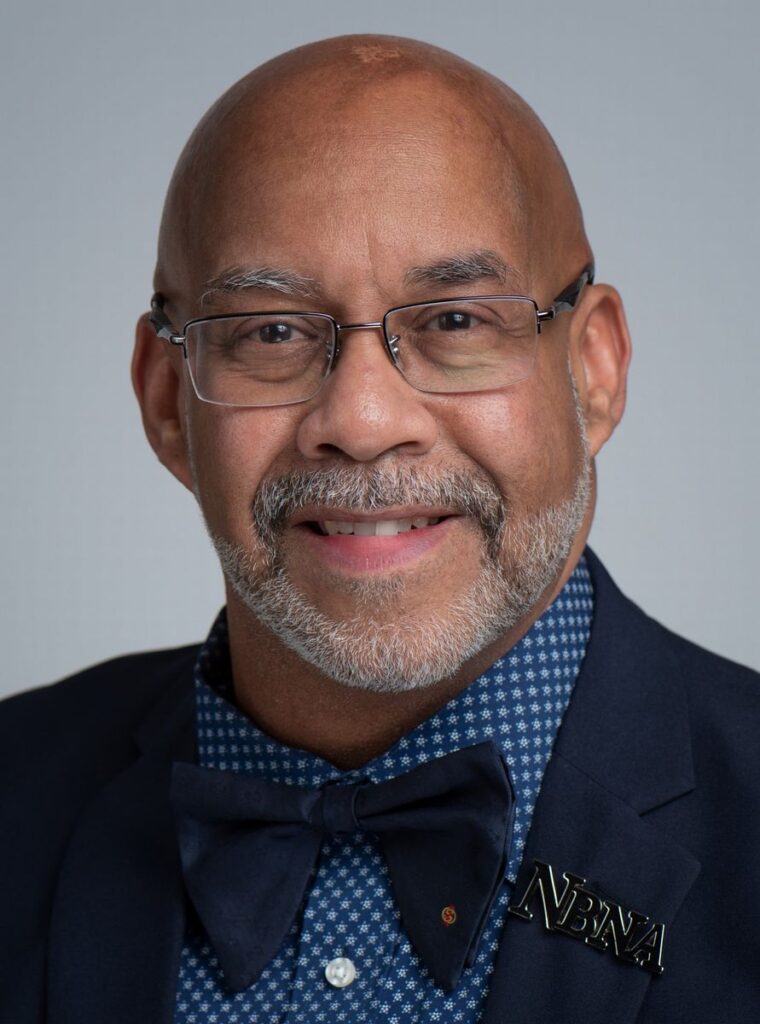
Support our Mission
The National Black Nurses Association invites you to support our national program initiatives. As a member, you’ll join over 308,000 individuals who recognize the value of belonging to the premier professional African American Nursing Association. If you prefer, you can make a donation to help fund our nursing scholarships and programs.

